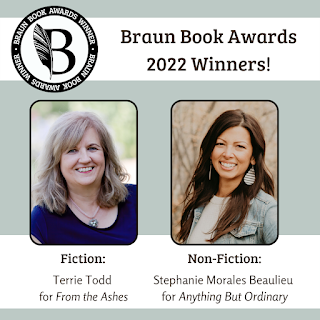In a sermon series on Jonah at our church, the speaker informed us that the Bible refers to Jonah as “Son of Amittai.” Jonah means “dove,” a symbol for peace, while Amittai means “faithfulness.”
While ancient cultures put great stock into the meanings of names and how their names affected their lives, most of us don’t. But this information made me curious. I decided to investigate the meaning of my own name and of my parents’ names.
It got more complicated than I’d hoped.
If, like me, you were born in 1959, chances are you had a Terry in your class. Mine had three at one point—two girls and a boy. An online search tells me that, in Canada, the name peaked for baby girls in 1955 and for boys in 1958. Given its many spellings, variations, and gender-neutral nature, finding an accurate meaning became a “choose-your-own-ending” story.
Technically named after my great-grandmother, Theresa, I started there. Probably derived from the Spanish, Theresa means “Harvester.” An alternate site told me Terrie means “late summer” in Greek or old German. Well, it’s not hard to make the connection between harvest and late summer.
My father’s name, “Matthew,” of Hebrew origin, means “gift from God.” Though he was born in 1919, Dad’s name didn’t reach its popularity peak until 1996. I bet you know a few Matthews now in their late twenties.
My mother’s name, “Norma,” comes from Latin meaning “the standard” or “norm.” It reached its popularity peak in the 1930s.
If I wanted to be sinister or cynical, I could put these three meanings together and concoct some doozies. I could see myself as “God’s gift” to the world, “harvesting” where I didn’t plant, helping myself to what others worked hard for, because that’s considered “normal” in today’s society. I could be a professional thief, movie star, or maybe a politician.
If, on the other hand, I wanted to draw valuable spiritual life applications, it’s not hard to see this a different way. Since my father was a gift straight from God and since my mother set a pretty high standard for what’s “normal,” (she even attended “Normal School” back in the day to become a teacher) and since I am apparently the harvester of all this goodness, how hard can it be? Seems like a person known as “Harvester, Daughter of God’s Gift and The Standard” ought to be raking in a bountiful crop by now. Turning around and feeding the hungry. Teaching those around her valuable lessons. Maybe even storing away sustenance for future use, possibly even for others after she’s gone. Hmm. Those all sound like things mothers, grandmothers, and writers might accomplish.
Well, as I said. You can bend, twist, and stretch meanings to fit however you’d like. But I think learning the meaning of your name and your parents’ names can prove valuable in establishing your life’s purpose. You may need to pick one from several options, but once you do, if you take it seriously and make it your calling, who knows what might develop? Once I knew my name meant “Harvester,” I Googled Bible verses about harvest. I found thirteen. Guess what? Half of them already appeared in my top-ten all-time favorites! Perhaps there is more to this than I knew.
Do you know what your name means? How about the names of your parents? It’s easy to find out. Do a little digging—see what resonates with your heart. Find corresponding scriptures. Claim your purpose, God’s purpose, for your life. You’ll be glad you took the time.
.jpg)





